
23 minute read
LEADERSHIP
GUIDING PRINCIPLES
Avoiding ethical missteps that can sink your business
Advertisement
By Julian Ryall
There are many ways in which damage can be inflicted on a company. Often, an organization’s financial standing or reputation are at the mercy of factors beyond the control of management. Harm can also be self-inflicted, however, through poor decision-making or a strategic error. Arguably the worst—and therefore most damaging—mistake that any company can make is a lapse of ethics that drags its previously good name through the mud.
An ethical error can see clients losing trust in a company’s products or services, leave investors no longer wishing to be associated with the operation, or find the most talented employees—sensing which way the wind is blowing— jumping ship for a safer place of work.
In a worst-case scenario, these factors combine to become the death knell of a company. We do not have to look far for an example: Lehman Brothers Holdings Inc. filed for bankruptcy in 2008 after 158 years of largely faultless investment banking.
Losing the confidence of the market, this industry stalwart collapsed and its fall had worldwide economic repercussions.
LASTING IMPACT More than a decade after that debacle—and despite the lessons learned—ethical standing remains an area of critical concern for companies, especially in the realms of technology, privacy, and protection of customer information. That recognition has also deepened on the part of consumers, who are demanding higher standards from the organizations with which they do business.
For companies operating across international borders—with local corporate cultures that are often extremely different—the complexities are, inevitably, multiplied.
“Reputation is critical to doing business in Japan,” said Timothy Langley, president of public affairs consultancy Langley Esquire.
TIMOTHY LANGLEY President Langley Esquire
“Credibility is founded on personal relationships, and these relationships are founded in ethics. “Everything revolves around personal relationships here: it is people who are the essential ingredient, the constant element in establishing who you do business with,” he said. “You build trust with the community and your consumers by demonstrating integrity and ethical leadership.”
The sheer difference in doing business in Japan can often be difficult for newly arrived professionals to grasp, Langley emphasized, with ethics high up on the list of corporate cultural differences.
“In Japanese society, as in the corporate culture here, ethics is calibrated and evaluated differently,” he told The ACCJ Journal. “Toss in the foreign element and it is no wonder there is confusion and perplexity—and tons of mistakes.”
Foreign companies operating here often find themselves in the “vulnerable position of striking that fine balance between Western ideals and Japanese standards for business ethics,” Langley continued.
“The underlying theme is the constant tension between expediency versus ‘doing the right thing.’ Executives running a foreign company in Japan must be wary of unforeseen exposure or brand erosion, which will, inevitably, result from neglecting proper business ethics.”
SANPOYOSHI Morio Sotsu, a consultant in the Public Affairs Division of public relations company Vector, Inc., said that, on the surface, the ethical requirements of a company and its executives are pretty straightforward.
“One of the best-known business principles in Japan is what we call sanpoyoshi, which means good for yourself, good for your customer, and good for society,” he said. “As long as you stick to that, ethical lapses will rarely damage your business. “The concept of society, however, needs a closer look,” he cautions. “It may, for example, include your employees, the customers of your customers, and the general public in a very broad sense.
“It is very difficult to foresee the reactions of every possible player in society—especially when a totally new type of business or industry is emerging,” he said, adding that the best course of action may well be to adhere to a rule-making process, with rules that are either “soft laws,” such as a code of conduct or guidelines, or “hard laws,” such as legally set legislation.
REPUTATION RISK EXPOSURES
1 Allegations and investigations
2 Product safety and quality control
3 Labor conditions 4 Ethical, social, and environmental violations
5 Behavior of key stakeholders
6 Misconduct
EMERGING RISKS The question of ethical misbehavior has become more complicated with the rapid advancements that we have seen in every aspect of our lives—including the corporate world— in recent years.
“Regulation only begrudgingly follows the rapid advancement of technology,” Langley said. “It is important for business ethics to be a guiding principle to safeguard the interests of the public and other stakeholders involved.
“Emerging technologies invite new opportunities and threats as they naturally challenge the status-quo,” he added. “The opportunities lie in creating frameworks that serve society as a whole, so win–win scenarios can be achieved, and bad actors prevented from exploiting vulnerabilities. This can only be realized through healthy cooperation between government, business, and the rest of society.”
There are two key reasons why ethical leadership is “critical” in today’s world, believes Midori Kaneko, director of Public Relations at Amazon Japan. The first is the often-unprecedented speed of change. The second is technology being adopted so rapidly among people who may not be fully aware of the limitations or dangers that it poses, and who, consequently, require security and protection.
MORIO SOTSU Consultant Vector, Inc., Public Affairs Division
MIDORI KANEKO Director of Public Relations Amazon Japan
month





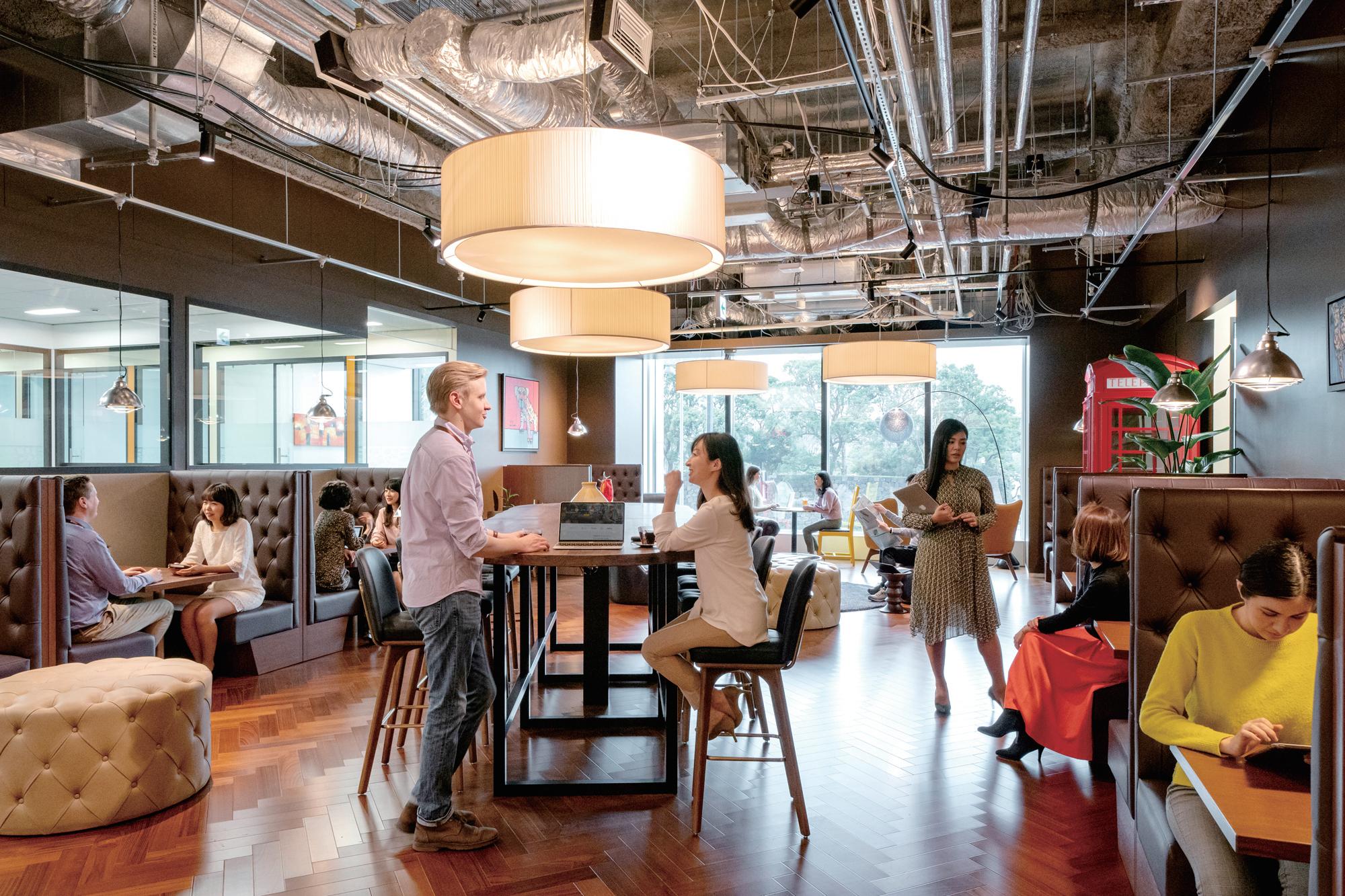
month month

“In the case of Amazon, we always go back to our customers and make sure these evolving technologies are working on their behalf,” she said. “Technologies are enablers and never solutions in and of themselves, so we are figuring out how to coexist with social media, artificial intelligence, machine learning, and so on every day as these continuously evolve. The outcome of technological advancement is only as good as the human beings.”
Amazon has embraced Japan’s vision for Society 5.0, promoting digital transformation with people at its core, but is still mindful of protecting the environment and ensuring sustainability. And businesses are more aware today than ever before that short-term maneuvers for immediate but brief gains are no longer an efficient business model.
ETHICAL SPOTLIGHT While business ethics vary widely between business sectors— energy providers may worry about the impact of their operations on the environment and broadcasters must avoid outraging or upsetting their viewership—tech companies such as Amazon and Google LLC are under a different kind of scrutiny. For companies that do the vast majority of their operations online, customer privacy and security is paramount. But their ethics are also under the spotlight.
Marketing is particularly an area where such companies’ efforts are monitored, due in part to data mining technology that permits businesses to track their customers’ activities online and potentially sell that data to marketing companies, or match users with advertising promotions. While some consider that to be abuse of a customer’s private data, it is unquestionably valuable to businesses and can boost the bottom line. “Those who operate at the cutting-edge of technology face the very real dilemma of either exploiting the lack of oversight or acting as ethical leaders,” said Langley.
“Current trends highlight the need to demonstrate ethical leadership in a company’s marketing-communications strategy,” he added. “Globally, companies are under scrutiny for unethical practices through the internet and social media. To mitigate this risk, it is important for a company’s marketing efforts to far outweigh any disclosure by whistleblowers.”
And the benefits of “getting it right” are easy to see. Clear and appropriate business ethics go far beyond improving employee loyalty and morale, or deepening the bonds within the management team. Doing the right thing, and being seen to do the right thing, have a direct bearing on profitability. A reputation—among related businesses, customers, investors, and other stakeholders—can be burnished and attract more investment, goodwill, and sales.
For customers and investors alike, there are few more attractive components than a positive public image. Some see corporate social responsibility (CSR) initiatives as a way of building this. “The real challenge can be discerning when companies are truly ethical, or just presenting themselves to be through CSR,” said Langley. “While business ethics and CSR are inherently connected, there are some companies that simply leverage their resources to offset negative PR.
“To truly build goodwill with the public, companies need to embrace opportunities to create shared value with the communities in which they operate,” he added in closing. “This must be communicated as part of your brand to build trust with business partners, government bodies, and other external stakeholders.” n
TOKYO HIGH LINE
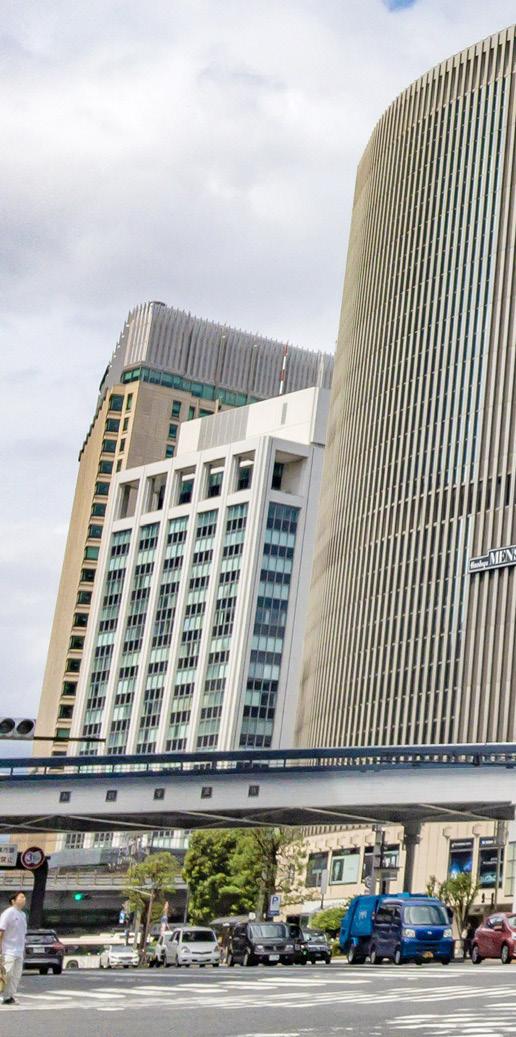
Ginza transformation inspired by New York success
By Julian Ryall
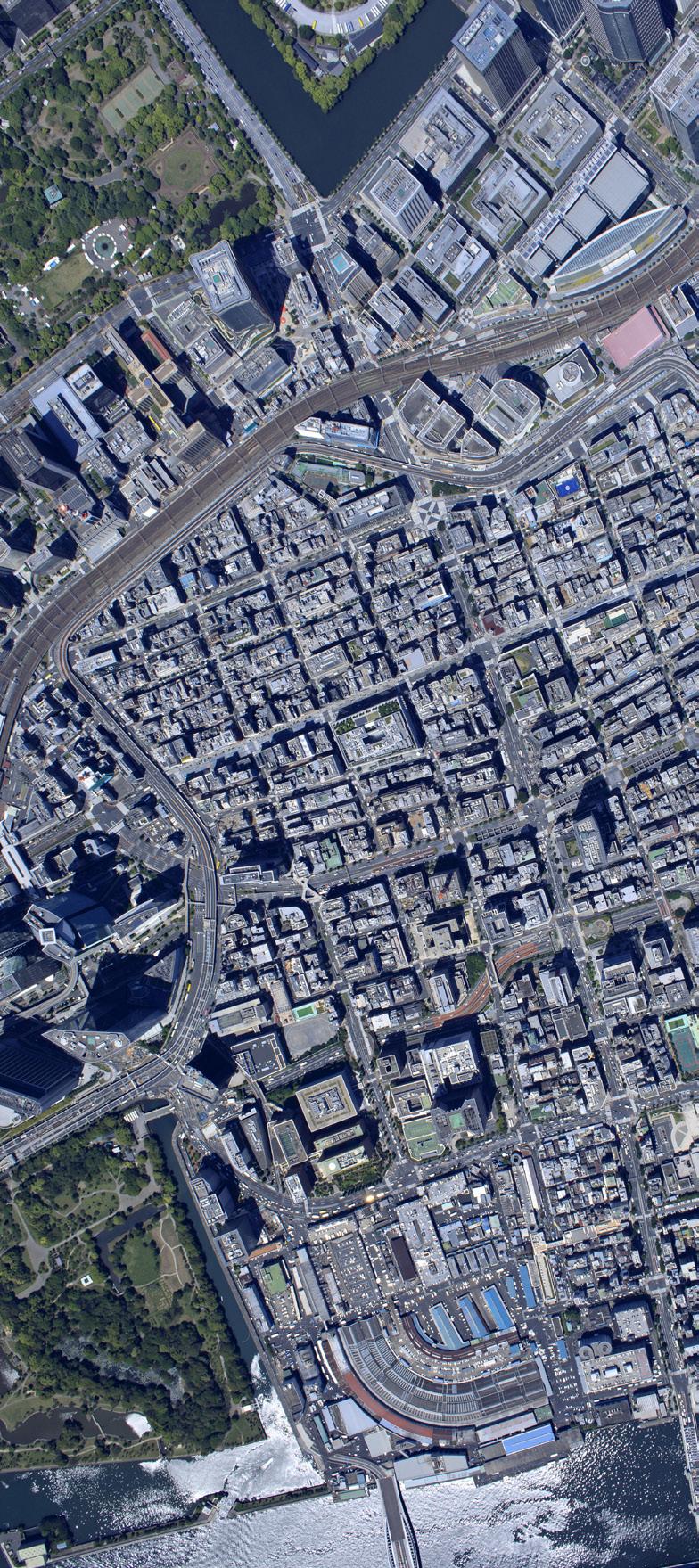
Paris led the way with the opening of the first stretch of its groundbreaking Promenade Plantée in 1993. New York City took the concept to new heights in 2009 when it inaugurated the now-iconic High Line. And Seoul provided pedestrians with a new take on that city two years ago with the construction of Seoullo 7017, better known as the Seoul Skygarden.
A reorganization and rationalization of roads in central Tokyo, combined with a conscious desire among the city’s authorities to provide more pedestrian-only green spaces, means that moves are now very much afoot to give the Japanese capital its very own elevated walkway.
GREEN GINZA Initially outlined in May last year, a formal plan was submitted to Tokyo Governor Yuriko Koike in late October to transform a stretch of the two-lane elevated freeway that bisects Ginza and the Yurakucho district of central Tokyo into a pedestrianized park. The development will offer places to sit and relax, with shade provided by the greenery that many complain is sorely missing in the heart of the metropolis.
In the presentation, the planners said their aim is straightforward: “We hope to create a green promenade full of people.”

Koike’s reaction was reportedly positive, with the governor saying: “We have considered uses for the KK Line after examining examples in other countries. The plan is very innovative and shows vision that goes beyond the 20th-century era of the car.” The plan is for traffic that currently uses a two-kilometer stretch of the Tokyo Expressway KK Line, which runs across the top of the Ginza Five shopping mall, to be rerouted to connect with existing and new routes that are being excavated beneath the city. The new route will start at Shinbashi in the north and end at Yaesu.
In a statement outlining the anticipated benefits to the local flora and fauna, the Tokyo Metropolitan Government’s Bureau of Environment said: “In order to revive the greenery of Tokyo, which is on a declining trend, Tokyo is actively promoting green conservation and the creation of new green spaces.
“Native species serve as food and nesting sites for Tokyo’s indigenous creatures,” it added. “By promoting greenery, the habitats of creatures can be restored and expanded in urban areas.” GLOBAL INSPIRATION Hiroo Ichikawa, a professor emeritus of urban planning and policy at Meiji University and executive director at the Mori Memorial Foundation’s Institute for Urban Strategies, said the concept behind the elevated pedestrian walkway has received positive feedback “quite simply because of the success of the High Line in New York.” As he told The ACCJ Journal: “That route was opened 10 years ago. At the time, people did not understand the idea behind the project. They did not realize the positive impact that it could have. But now, that impact is evident, and the High Line has become famous around the world, it is natural that other cities want to have something similar.”
As chair of the Chuo Ward Urban Planning Council, which has been championing the project, Ichikawa has visited both the New York and Seoul projects. He plans to take the very best elements of both to create an urban park in the center of Tokyo.
One of the lessons he has learned from the Seoul project, for example, is that it lacks sufficient mature greenery to provide shade. The consequence is that the Skygarden is exposed in the hot and humid summer months, making it uncomfortable for people to use for extended periods of time. ELEVATED EXPECTATIONS The success of the High Line, however, has convinced Ichikawa that something similar in Tokyo can have huge benefits.
The High Line is a 2.3-kilometer elevated park that was created on a spur of the former New York Central Railroad—on the West Side of Manhattan—that was originally constructed in 1847 but The concept . . . has received positive feedback “quite simply because of the success of the High Line in New York.”
abandoned in 1980. Work to repurpose the railroad began in 2006. The first phase opened three years later. A second stretch was added in 2011 before a third section opened in September 2014. A final stub, above Tenth Avenue and 30th Street, was delayed for several years. It finally opened last June.
The project is credited with encouraging other cities across the United States to look at obsolete infrastructure through new eyes and to redevelop it into public space. There has also been an impact in the districts of New York surrounding the High Line, promoting the redevelopment of what was a relatively run-down area of the city, lifting real estate values and encouraging developers to take on projects.
The city estimates that as many as five million people utilize the park, which is accessible from 11 entrances and is open until 11:00 p.m. in the summer months and 7:00 p.m. in winter.
“The High Line has brought development and prosperity to what was a neglected area. But since it was completed, it has attracted more people to live in the area, has brought in shops and businesses, and has had a hugely positive impact,” Ichikawa said. “It may have been a relatively small and easy thing to do, but the impact on the community has been incredible.”
PHOTO: MARCO RUBINO

Paris’s Promenade Plantée
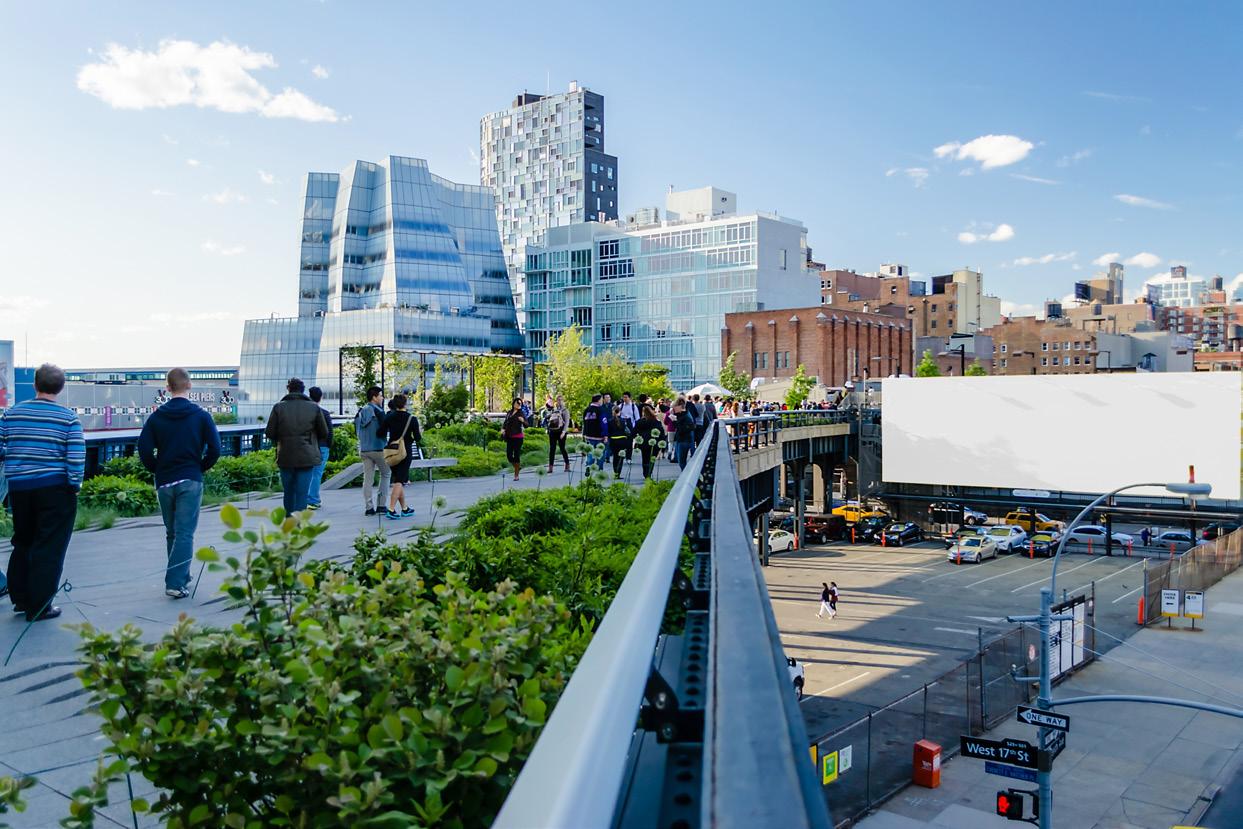

PHOTO: KEITMA
The Seoul Skygarden
TOKYO TRANSFORMATION The full details of Tokyo’s version of the High Line—including the financial considerations—have yet to be detailed, although the cost is not expected to be exorbitant as the roadway is already carefully maintained and rated to carry heavier loads than pedestrians. The road is also privately owned, and it is anticipated that maintenance costs will be paid for by shops and restaurants in the area, which will benefit from an increase in customers when the park is opened.
Ichikawa points out that the plan is in line with similar projects designed to green or otherwise improve other parts of Tokyo that were scarred by the rush to develop the city in the 1950s and 1960s. Perhaps the best example of that, he suggested, is the drive to restore the bridge at Nihonbashi to its former glory.
A campaign is underway to remove the elevated motorway that was built over a graceful bridge constructed in 1911. An earlier bridge was built at this site in 1603 on the orders of Tokugawa Ieyasu and was considered the starting point for the five major roads that ran the length of the nation.
The historical significance and aesthetics of the bridge were overlooked in the haste to prepare the city for the 1964 Tokyo Olympic Games, leaving it today in permanent shadow.
“It’s not just in Japan. All over the world, there are projects to recover historically important structures and provide more
greenery,” said Ichikawa. “The proposals for the bridge at Nihonbashi have had a big influence on other areas of Tokyo, and new ways are being created for people to walk in the center of the city and feel comfortable.”
Karl Hahne, co-chair of the American Chamber of Commerce Real Estate Committee and president of Hafele Japan K.K., welcomed the plans.
“As a 30-year resident of Tokyo, I have seen a huge number of improvements in the quality of life—mainly for those of us who drive. And the long-term vision of real estate developers who take 40 years to buy all the land in one district, in order to create another mini-city within the city, has added lots of value to life in Tokyo,” he said.
“As the benefits to health from sunlight and exposure to nature are recognized more and more, I expect Tokyo to lead the world in creating the healthiest and most livable of all metropolises.” n

Exclusive content published on the Japanese-language website includes features on some of the world’s most sought-after residential and commercial properties, the latest listings, and translations of original articles from Mansion Global editions worldwide: mansionglobal.jp

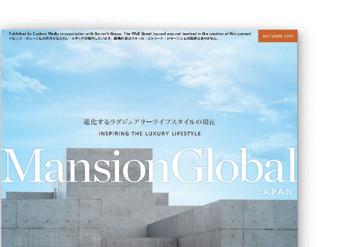


Luxury Real Estate
at your fingertips ...
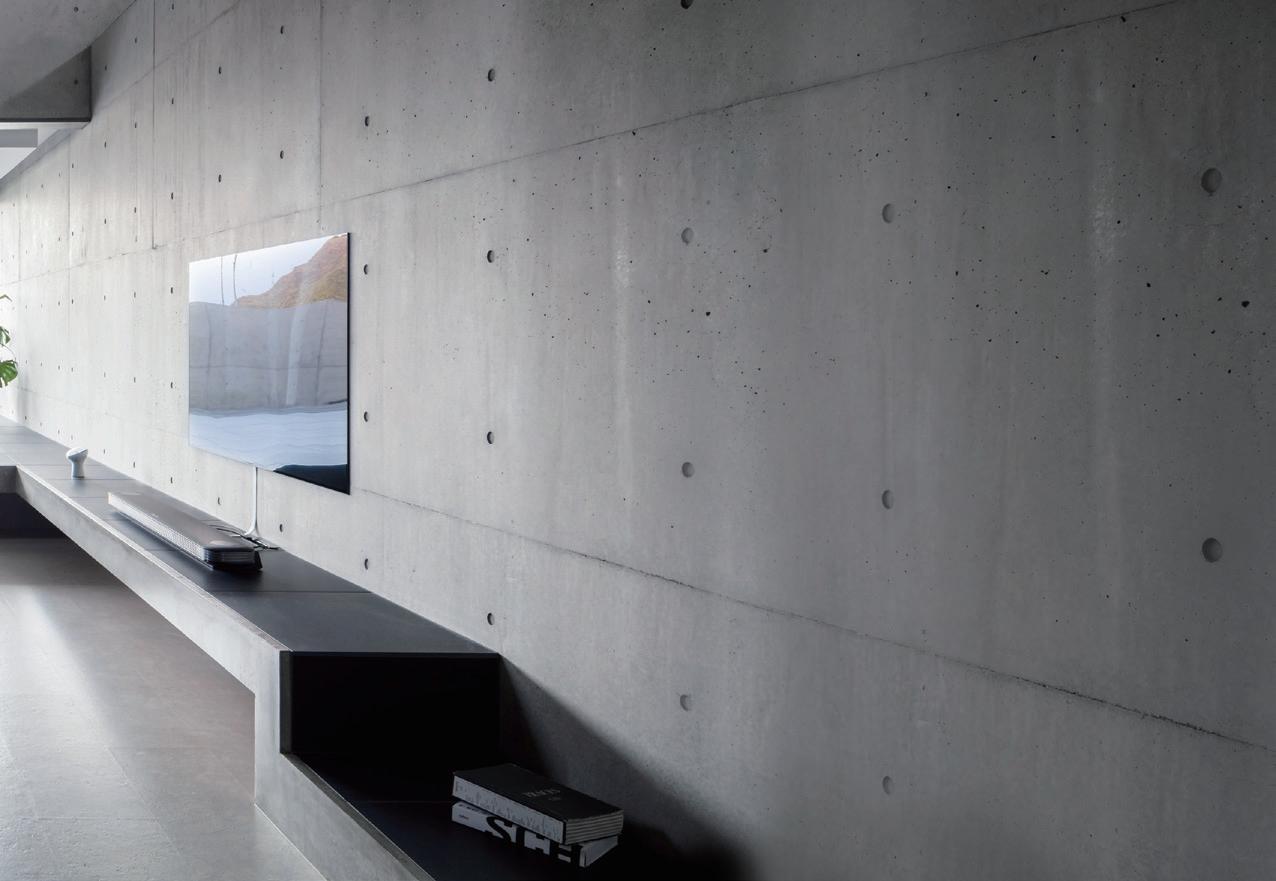





SUBSCRIBE NOW
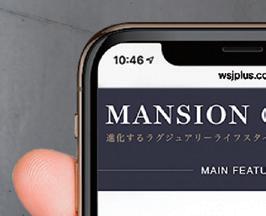


Subscribe to our free newsletter for luxury:
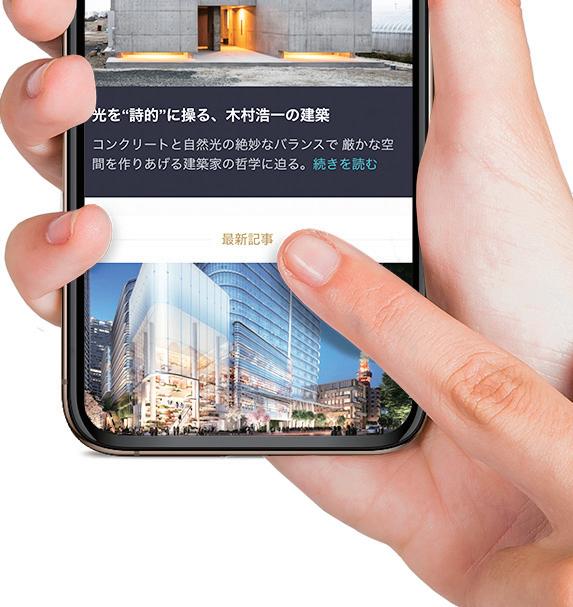
ê property information ê lifestyle articles ê seasonal updates
To advertise your property and reach our affluent audience, contact us about our Mansion Global Japan: To advertise your property and reach our affluent audience,
• regularly updated website • bi-weekly e-newsletter • quarterly magazine

FAMILY INSPIRATION
Tania Coke seeks to transform elderly care

By John Amari
When Tania Abedian Coke was in college, her mother called her out of the blue to offer words of encouragement: “You know, you can be a CEO. I just want you to know that,” her mother said.
Coke, who recalls growing up in a family environment that was always supportive, was taken aback by those words. And yet, years later, they have proven prophetic.
Today, she is the CEO and co-founder of Tellus You Care Inc. (Tellus), a healthcare startup with offices in San Francisco and Tokyo.
The company’s patented healthcare technology—a radarenabled system powered by artificial intelligence (AI)—remotely monitors the health status of someone in a specified room, such as an elderly person in a care home.
The palm-sized, non-contact device can be attached to a wall. With precision and sensitivity, it detects a person’s heart rate, breathing, and movement. The device can tell if a person is walking, falling, or sleeping.
Such capability is important for healthcare professionals or relatives caring for a senior, allowing them to keep tabs on those in their care in a dignified, efficient, and effective way.
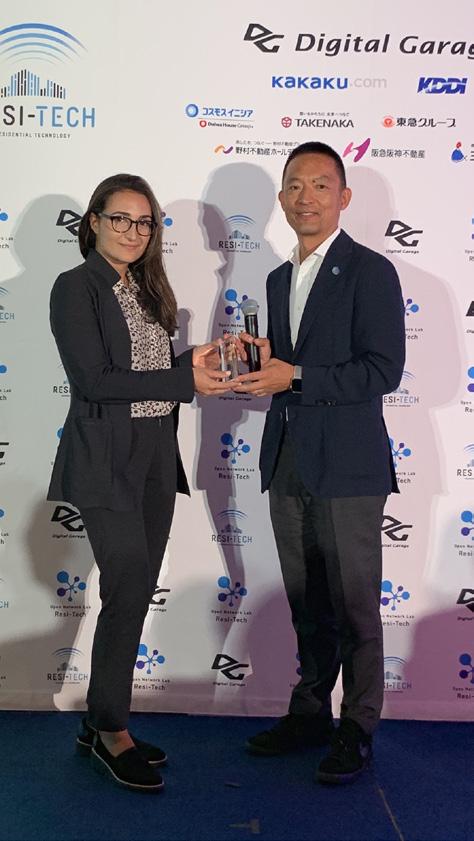
FAMILY TIES Starting a company and becoming a CEO were not always goals for Coke. In university, for example, she entertained the idea of becoming a doctor. But, looking back to her early career, it’s clear that she was never averse to taking on challenges and risk—even if they were calculated ones.
At first, Coke worked in strategy for a FinTech company in New York, then pivoted to product development in a global tech company in San Francisco. Not long after, she transitioned to graduate school before co-founding Tellus.
Why did Coke ultimately choose the startup life? The answer, in part, can be traced back to her formative years and growing up in a close-knit family.
Raised outside Cambridge, Massachusetts, Coke recalls an idyllic childhood, living close to nature and surrounded by family.
“I grew up in a really beautiful area—a woodsy, nature wonderland. Close to where I grew up is something called Walden Pond,” she told The ACCJ Journal. The pond—a historical landmark and protected area in Concord, Massachusetts—is the subject of writer Henry David Thoreau’s eponymously named Walden; or, Life in the Woods. It was perhaps that bucolic environment, rich in flora and fauna, that led to her initial fascination with biology, her major in college.
Equally important, Coke recalls a time growing up in a home where family life loomed large—in particular the presence of her elderly grandmother. “I think having the influence of my grandmother living with us from a young age, and then helping my family manage her care, was really big. It was something that was very much a part of my life.” HEALTH TECH Is that to say a straight line can be drawn from Coke’s care for her ailing grandmother to creating Tellus? Not really.
Her career took a winding path, adding critical elements along the way—such as an appreciation of technology and its application to solve real-world issues.
It was, in part, her discussions with Kevin Hsu about the care of elderly relatives that fermented her decision to create a healthcare startup. Hsu is a cofounder and chief technology officer at Tellus.
The pair met in 2015 while attending graduate school at Stanford University. At the time, Coke was researching management science and engineering and Hsu was studying electrical engineering.
“I was thinking about working in venture capital,” Coke confesses. “Then Kevin and I had this discussion where we shared ideas about our aging grandparents.”
It was in 2017—the pair having had similar discussions from time to time while at Stanford—when Coke had her “aha moment.” AI and machine learning algorithms [create] a rich profile of an individual that can be used by caregivers to monitor and predict health.
47.8 MILLION

1.6 MILLION
14.9 PERCENT
Americans are aged 65 and older
the growth in that population since 2014
the portion of the US population this group represents
Tellus’s monitoring device can be attached to a wall.
SOURCE: US CENSUS BUREAU HTTPS://WWW.CENSUS.GOV/NEWSROOM/FACTS-FOR-FEATURES/2017/CB17-FF08.HTML
Some seven years earlier, Coke was graduating with a major in biology. But, even then, she had taken courses in math and computer science.
So, it made sense that, when she began work, the first steps would be at Capital IQ, a FinTech company on the East Coast, and then at tech giant Google LLC in California.
Looking back, she found that both experiences were instructional and heightened one of her passions: technology. However, Coke felt there was something missing. How could she connect technology with her other passion: healthcare. “I worked for a FinTech company in New York and a tech company in San Francisco, so I was getting closer to technology. But I studied biology in my undergrad years, and I was always interested in the intersection of health and technology.” To bridge those fields, Coke felt it necessary to go back to school. So, she left the comfort of Google to attend Stanford. There was much uncertainty about the move. “I took the time at Stanford to explore, and I didn’t know exactly what that would lead to,” she recalls. “Maybe I would become a venture capitalist investing in health or technology. I didn’t know exactly that I would start a company. But I knew that I wanted to work on something health related. That was important to me.” REMOTE CARE Tellus’s radar-based, non-contact device can sense the fine movements of a person in a room—including movements that suggest increasing or declining health.
“With our device, we can understand if a fall has happened in the room, or if someone’s movements are improving, which is quite important for aging and elder care,” Coke explained. To date, the company has received about $3 million in seed funding. Such information is used to train the device’s patented AI and machine learning algorithms, thereby creating a rich profile of an individual that can be used by caregivers to monitor and predict the health of those in their charge.
In the future, such data may also become the basis for advancements in healthcare and medicine, especially—but not limited to—the treatment and care of seniors, Coke added.
So far, the company has designed the software and hardware at the core of their smart device. They have also conducted testing, including at care facilities in Kobe City.
Focusing initially on a business-to-business software-asa-service marketing model, Tellus is forming partnerships with companies in the caregiving sector, including real estate developers and healthcare providers.
To date, the company has received about $3 million in seed funding from NTT Docomo Ventures, Inc., Digital Garage, Inc., AI studio All Turtles Corporation, the University of Tokyo Edge Capital Co., Ltd., and Miyako Capital, the venture capital company that manages the second Kyoto University Venture Fund. HELPING HAND Thinking about her burgeoning career, Coke is grateful to a number of people who have supported her along the way. In addition to her family and co-founder, she is thankful to the people who stepped up at key moments in her life— including investors, teachers, and mentors.
“I met Phil Libin when I was a teacher’s assistant at Stanford for a class called entrepreneurial finance,” Coke said.
A serial entrepreneur and venture capitalist, Libin was the CEO of software developer Evernote Corporation and a general
partner at venture capital company General Catalyst. In 2017, he co-founded All Turtles.
“In January 2018, I went to an event where I reconnected with Phil. I saw him give a talk. After, I said to him: ‘Remember me from six months ago? I actually started a company. Can we chat about it?’”
All Turtles is not only an investor in Tellus, it is a strategic partner providing key resources, including office space, support staff, and a vital network of partners.

MOTIVATING FACTORS Coke is especially grateful to her mentors at Stanford—in particular Heidi Roizen, Tina Seelig, and Singari Seshadri.
Seshadri manages Stanford Venture Studio, a hub for startups; Roizen is a venture capitalist and lecturer; and Seelig is a professor and director.
When Coke and her co-founder graduated from Stanford, they joined Seshadri’s summer program to work on their technology and develop their idea.
Before that, Coke was part of the Threshold Ventures Fellows program (formerly the DFJ Entrepreneurial Leadership Fellowship). Run by Roizen and Seelig, the program provides one-on-one training in entrepreneurship for a select group of graduate students at Stanford. “Tina and Heidi are two women who I really look up to. There are others, but that timing, when people entered my life and said, ‘I believe in you; you can do it,’ was important.”
As we conclude our talk, Coke returns to family and thoughts of her grandmother. “I remember when my mom called me and said, ‘You know, your grandmother fell, and she’s okay. But I just wanted to let you know I had to help her up.’”
Calls like that, Coke says, became more frequent with time. That’s why she created Tellus: to solve such concerns, not just for her own family, but for families around the world. n






